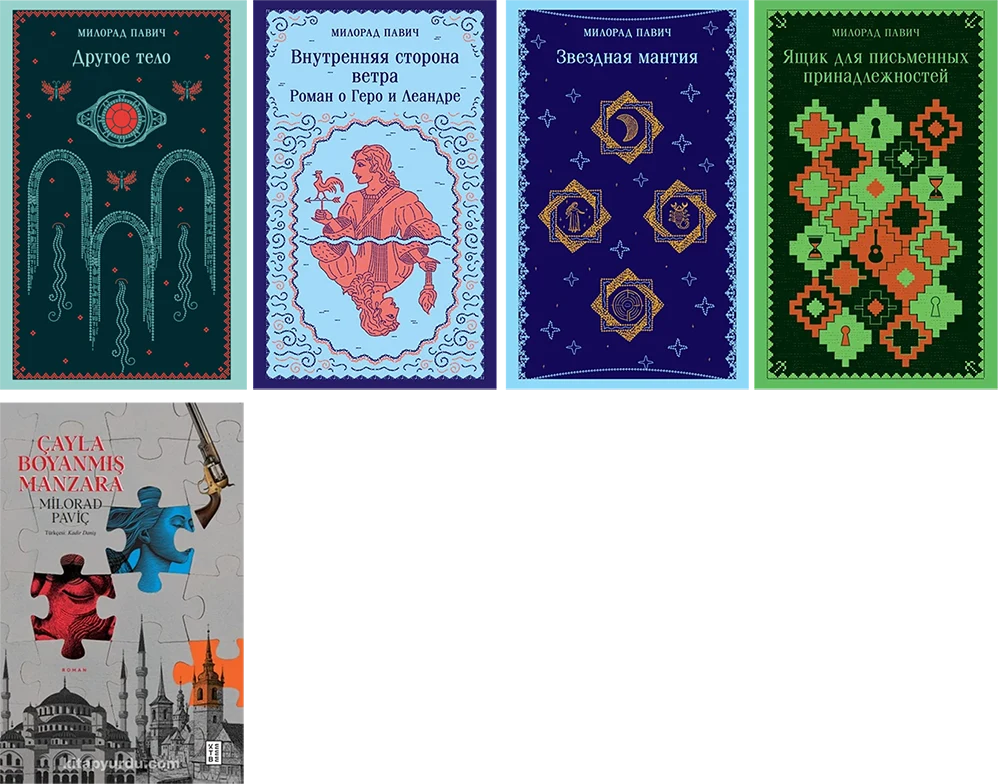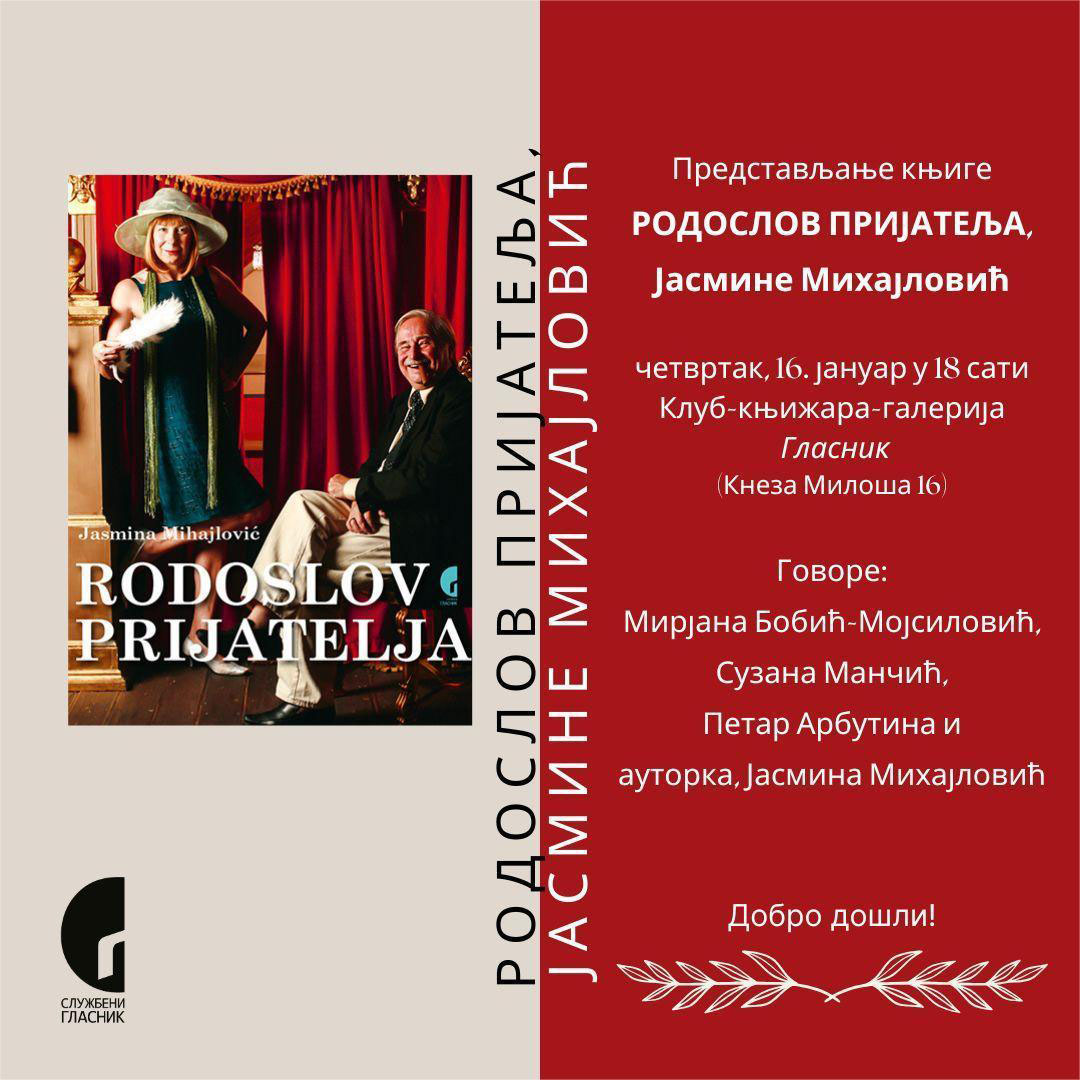March 27th 2010.At the Faculty of Philology at the Segedin University, Jasmina Mihajlović held two lectures on the life and work of Milorad Pavić, on March 25th and 26th. One of the lectures was part of the doctoral program for Russian literature and culture, and the other was for the students of Serbistics. Doctoral candidate Turi Robert is preparing a thesis on the complete work of Milorad Pavić. The doctoral thesis will be published in the form of a monograph in Hungarian.
Sad Passing of Academician Milorad Pavić
Milorad Pavić die Novembre 30rd 2009. “I entered into literature on my own, I live in it on my own and I shall depart from it on my own when the time comes,” said this famous writer. Academician and author Milorad Pavić, professor of the Faculty of Philosophy of the Belgrade University, passed away yesterday of complications following a heart attack at the age of 80. Pavić was one of the most translated Serbian authors, primarily thanks to his “Dictionary of the Khazars”, which gained popularity throughout the world. The Serbian Academy of Arts and Sciences has announced that the funeral will be held on Thursday, December 3rd, at 12 noon at the Novo Groblje cemetery in Belgrade. x x x Milorad Pavić (1929-2009), author of cult novels “Dictionary of the Khazars”, “Landscape Painted with Tea”, “Inner Side of the Wind”, “Writing Box”, “Star Cape”, “Unique Item”, “The Tale that Killed Emily Knorr”, “Fake Mole”, collection of stories “Iron Curtain”, “The Horses of Saint Mark”, “Borzoi”, “New Tales from Belgrade”, “Souls are Bathing for the Last Time”, and a series of other books – his literary creation included lexicon-novels, crosswords, tarot cards, the discovery of antique writing boxes, he interpreted astrological signes, passed from life to death, from wake to sleep, from the real to the unreal. The nether world was what interested him the most. The nether world, he said, is a part of our life, except we forgot that long ago. Onlz artists, women and the Church are, perhaps, aware of this. He wrote poems, stories, novels, essays, studies in the history of literature, plays, translated Pushkin and Lord Byron. He became a regular member of the Serbian Academy of Arts and Sciences in 1991. He was member of the European Association for Culture and the Serbian PEN Center. “Dictionary of the Khazars” was the first book that could be read on a computer, in the order it was presented, but in any other order as well. The readers could choose a term and the path by which to reach the end of the novel. Pavić realized in time that the end of literature as we had known it for a long time had come. Images, sounds, signs, compete successfully with the linearity of language, which makes it akin to a slow train. So he tried to create non-linear writing in his books, a writing closer to “the blossoming of the thoughts and dreams of man” and less dependent on the chronological stringing of words into sentences. Thus the striving to, relying on the initiative of the reader, create new forms of reading, and writing as well. Thus his striving to create a novel-dictionary, a novel-crossword puzzle, a novel-clepsydra, a fortune-telling novel, or a novel for those unfamiliar with astrology, an interactive play in the form of a theater menu, an interactive story in which the readers choose their own path. In such striving, he explained, he was assisted by the readers. Primarily by female readers, since they have a different way of perceiving his books, since they are unburdened by the epic past. In the 20th century he became the author of the 21st century: “Some critics, such as Lance Olsen, think so. Others, such as Alexander Genis, think I have tried to go as far as possible into the past, towards ancient literary lore. In any case, I entered into literature on my own, I live in it on my own and I shall depart from it on my own when the time comes. As for the future, I do now know what will become of the book and of literature. Perhaps it will return to its epic, oral, pre-Guttenberg form, in a manner that we can hardly imagine. In any case, it can already be sensed today that the book and its global reputation will not be the same in the 21st century as in the past one, although only a few years separate us from this past.” He was the first among Serbian authors to have his own website, books without covers, which are read on a computer. That is why he said that the book must change and adapt to the future, which is merciless as all futures have been. Reading is doubtlessly becoming just as important as writing. He was the first to write a novel-sea. But the reader need not know how to swim to be able to read it. The novel “Unique Item” is a novel with a hundred different endings. He liked to cooperate with his readers, for there are, he used to say, more gifted readers than there are gifted writers. His heroes were also perfumes, or identifying coupons of the protagonists, but also weapons of death and crime. It is well known who has the sharpest nose – the Foul Fiend. He directs and plans his murders by smell. In his novels dreams are sold and purchased. The ones as yet undreamed, telling of your future, are the most expensive. Mankind is, after all, more gifted in sleep than in waking hours. He claimed that the borders between genres were becoming extinct, that the contemporary novel, read on a computer, should not be more than fifty pages long. In the novel “The Tale that Killed Emily Knorr” storytelling (the story) kills the listener (the reader). Thus literature, with Pavić, becomes dangerous to the reader. “In this book the author is accused of being able to kill with a story. Off course this is not possible, but when the world wants to make somebody look bad (which is something that, here in Serbia, we have witnessed directly), then all means are used. In my novel the story is, after all, able to kill. It can kill the one that created it, that is to say – its writer.”
Zoran Radisavljević. “Politika”, Belgrade, December 1st 2009
The New York Times – Milorad Pavic, Serbian Author of Novel Novels, Dies at 80 Fantasy Book Critic – Milorad Pavic, Famous Serbian Author of Experimental Fiction Dies at Age 80






